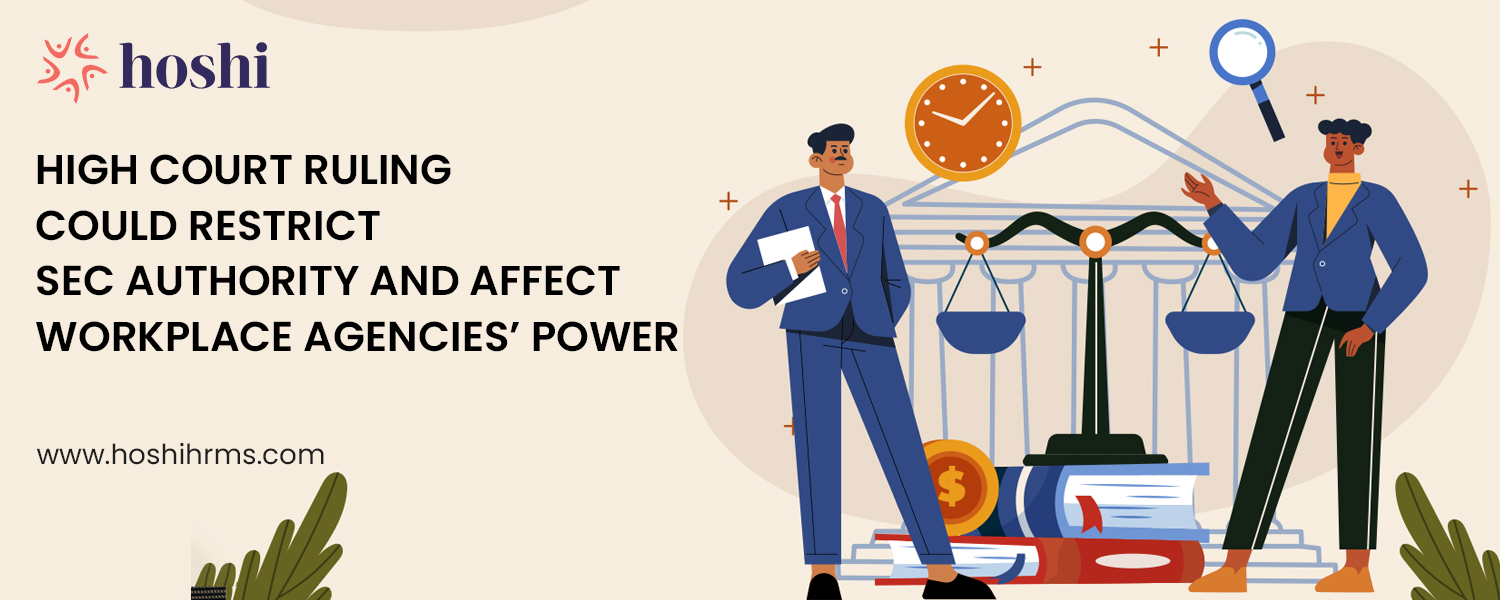High Court Ruling May Limit SEC and Workplace Agencies' Power
A recent U.S. Supreme Court ruling could have far-reaching implications for regulatory agencies worldwide, including in India. This decision, concerning the U.S. Securities and Exchange Commission (SEC), challenges the constitutionality of the agency's internal adjudication processes and could potentially influence how workplace and financial regulatory agencies operate in other countries, such as India.
Overview of the Ruling
The U.S. Supreme Court ruled that the SEC could not use its in-house courts to resolve certain enforcement actions involving civil penalties. The decision was based on a case involving investment adviser George Jarkesy Jr., who was accused by the SEC of defrauding investors. The court held that the SEC's use of administrative law judges (ALJs) for such cases violated the Constitution's Seventh Amendment right to a jury trial when civil penalties are involved. This ruling effectively requires the SEC to pursue these cases in federal courts instead.
The court's decision emphasized that the SEC's enforcement actions for fraud need to be heard in an Article III court with a jury trial, rather than through administrative proceedings. This ruling challenges the longstanding practice of using internal tribunals to handle securities violations and could impact more than 200 statutes that allow U.S. federal agencies to impose penalties via administrative proceedings.
Implications for India
Although this ruling directly affects U.S. agencies, its implications could extend to India, where regulatory bodies like the Securities and Exchange Board of India (SEBI) and the Ministry of Labour and Employment use similar administrative processes to enforce regulations.
1. Potential Shift in Regulatory Practices: Indian agencies may need to reconsider their reliance on internal adjudicatory bodies for resolving disputes and enforcement actions. Like the SEC, these agencies might face challenges if similar constitutional arguments are raised regarding the right to a fair trial.
2. Impact on Workplace Agencies: Agencies that oversee workplace regulations, such as the Employees' Provident Fund Organisation (EPFO) and others, may need to reassess how they enforce compliance and adjudicate disputes. The ruling raises questions about the balance between administrative efficiency and constitutional rights, which could influence how workplace disputes are resolved in India.
3. Legal and Structural Changes: To align with potential new legal interpretations, Indian regulatory bodies might need to seek legislative changes that explicitly allow or limit the use of internal tribunals for specific types of enforcement actions. This could involve amending existing laws to provide clearer guidelines on the scope of administrative powers and the rights of defendants.
Broader Impacts and Considerations
- Strengthening Legal Frameworks: The ruling highlights the importance of powerful legal frameworks that balance regulatory efficiency with the protection of constitutional rights. Indian policymakers might take this opportunity to strengthen the legal basis for regulatory actions, ensuring they withstand constitutional scrutiny.
- Global Precedent and Influence: The decision could set a precedent that influences regulatory practices globally. Countries with legal systems influenced by U.S. jurisprudence, including India, may find themselves revisiting the structure and authority of their regulatory agencies.
- Role of the Judiciary: The ruling highlights the judiciary's role in reviewing and potentially limiting the powers of regulatory agencies. In India, this may lead to increased judicial oversight of administrative actions, ensuring they comply with constitutional provisions and protect individual rights.
The U.S. Supreme Court's decision to curb the SEC's use of in-house courts could significantly impact regulatory frameworks worldwide, including in India. This ruling raises important questions about the balance of power between regulatory efficiency and constitutional rights, prompting a reevaluation of how agencies enforce laws and adjudicate disputes. As India continues to develop its regulatory landscape, this decision may catalyze legal reforms and increased judicial scrutiny of administrative processes.




